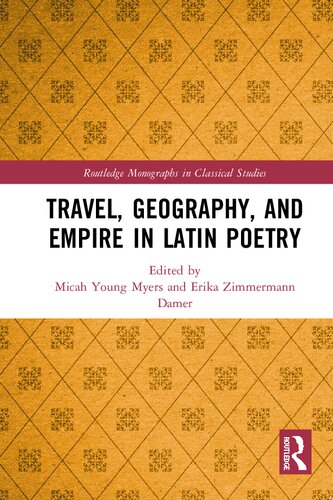

Most ebook files are in PDF format, so you can easily read them using various software such as Foxit Reader or directly on the Google Chrome browser.
Some ebook files are released by publishers in other formats such as .awz, .mobi, .epub, .fb2, etc. You may need to install specific software to read these formats on mobile/PC, such as Calibre.
Please read the tutorial at this link: https://ebookbell.com/faq
We offer FREE conversion to the popular formats you request; however, this may take some time. Therefore, right after payment, please email us, and we will try to provide the service as quickly as possible.
For some exceptional file formats or broken links (if any), please refrain from opening any disputes. Instead, email us first, and we will try to assist within a maximum of 6 hours.
EbookBell Team

4.4
82 reviewsThis volume considers representations of space and movement in sources ranging from Roman comedy to late antique verse to explore how poetry in the Roman world is fundamentally shaped by its relationship to travel within and the geography of Rome's far-reaching empire.
The volume surveys Roman poetics of travel and geography in sources ranging from Plautus to Augustan poetry, from the Flavians to Ausonius. The chapters offer a range of approaches to: the complex relationship between Latin poetry, Roman identity, imperialism, and travel and geospatial narratives; and the diachronic and generic evolutions of poetic descriptions of space and mobility. In addition, two chapters, including the concluding one, contextualize and respond to the volume's discussion of poetry by looking at ways in which Romans not only write and read poems about travel and geography, but also make writing and reading part of the experience of traveling, as demonstrated in their epigraphic practices. The collection as a whole offers important insights into Roman poetics and into ancient notions of movement and geographical space.
Travel, Geography, and Empire in Latin Poetry will be of interest to specialists in Latin poetry, ancient travel, and Latin epigraphy as well as to those studying travel writing, geography, imperialism, and mobility in other periods. The chapters are written to be accessible to researchers, graduate students, and advanced undergraduates.